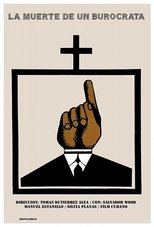Tomás Gutiérrez Alea

Tomás Gutiérrez Alea
Tomás Gutiérrez Alea (December 11, 1928 – April 16, 1996) was a Cuban filmmaker. He wrote and directed more than 20 features, documentaries, and short films, which are known for his sharp insight into post-Revolutionary Cuba, and possess a delicate balance between dedication to the revolution and criticism of the social, economic, and political conditions of the country. Gutiérrez's work is representative of a cinematic movement occurring in the 1960s and 1970s known collectively as the New Latin American Cinema. This collective movement, also referred to by various writers by specific names such as “Third Cinema”, “Cine Libre”, and “Imperfect Cinema,” was concerned largely with the problems of neocolonialism and cultural identity. The movement rejected both the commercial perfection of the Hollywood style, and the auteur-oriented European art cinema, for a cinema created as a tool for political and social change. Due not in a small part to the filmmakers’ lack of resources, aesthetic was of secondary importance to cinema’s social function. The movement's main goal was to create films in which the viewer became an active, self-aware participant in the discourse of the film. Viewers were presented with an analysis of a current problem within society that as of that time had no clear solution, hoping to make the audience aware of the problem and to leave the theater willing to become actors of social change.











